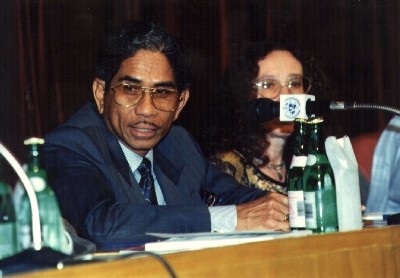Popular Reads
Top Results
Can't find what you're looking for?
View all search resultsPopular Reads
Top Results
Can't find what you're looking for?
View all search resultsOffshore companies created to support exports: former BI governor
Change text size
Gift Premium Articles
to Anyone
I
ndonesian businessmen established offshore companies to support their export businesses in the early 1990s and not necessarily to avoid tax, former Bank Indonesia (BI) governor from 1988-1993 Adrianus Mooy said.
During that era, the rupiah was devalued while the oil price declined due to an oil glut that caused an oversupply in the market. The global economy was also contracting, to around three percent a year, he explained.
"At that time, Indonesia was an export-oriented country and it was difficult to predict the exchange rate. In the export business, converting the US dollar to rupiah and then reconverting it might cause losses. Thus, it was better to put the money offshore," Mooy said on Thursday.
Indonesia tamed that situation by boosting non-oil and gas exports and devaluing the rupiah, which at the time was strengthening against the dollar. During Mooy's time, the inflation rate was quite high, at around 10 percent.
As such, Mooy emphasized that offshore companies were not automatically guilty of tax fraud or money laundering.
Some politicians and businessman in Indonesia are in the spotlight after the Panama Papers revealed that they own offshore companies.
"To stabilize the exchange rate, we made a deal with the US on currency exchange swaps. As their inflation rate was around 5 percent at that time, with our 10 percent inflation rate, there was a gap of 5 percent in the purchasing power parity," he said.
The swap agreement helped the businessmen predict the level of the rupiah. Mooy argued that the very same method could be used today as Indonesia adopts a free-floating rate instead of a managed floating rate during his period. (ags)










